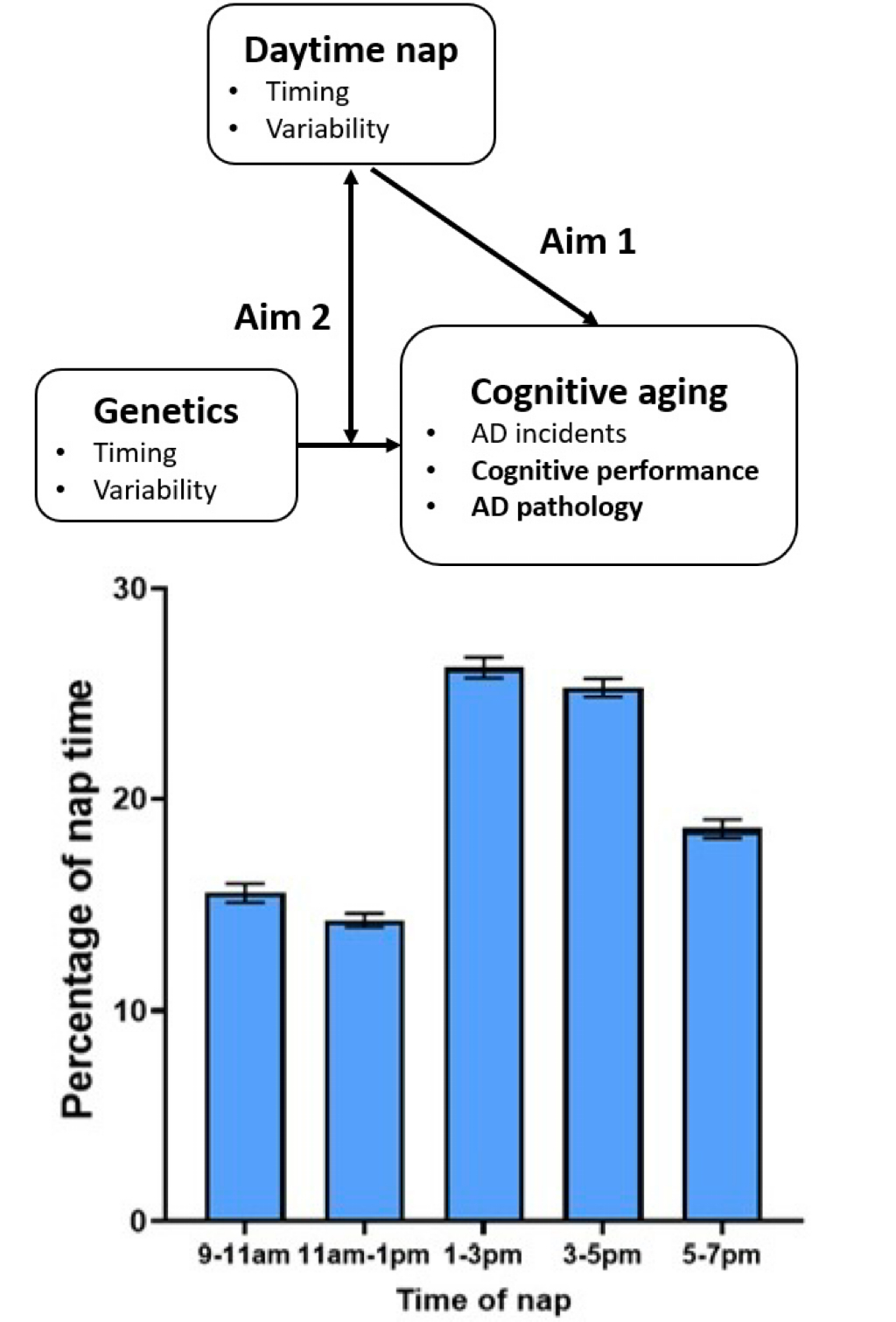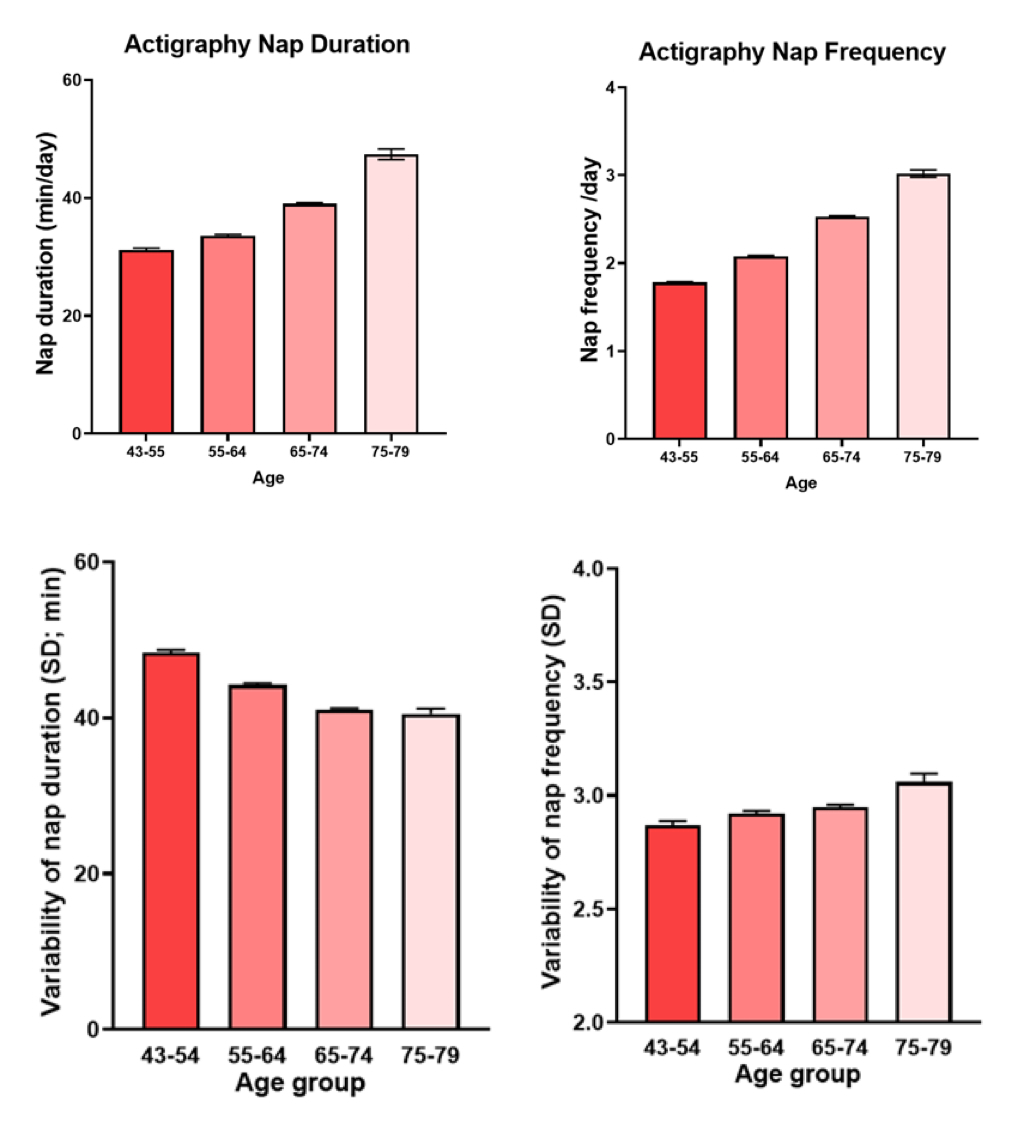Circadian regulation, autonomic function, and Alzheimer’s disease

This project is designed to determine whether changes in circadian regulation and autonomic function can predict the development and progression of AD and cognitive decline in the elderly people at early, preclinical stages. This project may provide new intervention targets in future clinical studies of AD, and can lay the groundwork for the design of novel unobtrusive, cost-efficient tools for long-term monitoring of cognitive impairment or risk for AD.
- Sponsor: BrightFocus Foundation
- PI: Peng Li, Ph.D.
- Co-PI: Lei Gao, MBBS; Kun Hu, Ph.D.
Timing and irregularity of daytime napping and Alzheimer’s disease
Longer and more frequent daytime naps were associated with higher risk of AD. More excessive (longer or more frequent) daytime napping was correlated with worse cognition, and conversely, worse cognition was correlated with more excessive naps. Older adults also nap irregularly and at different times of the day. Are these napping characteristics (i.e., timing and regularity) associated with cognitive decline or risk of AD?
- Sponsor: Alzheimer’s Association
- PI: Chenlu Gao, Ph.D.
- Mentor: Peng Li, Ph.D.; Kun Hu, Ph.D.; David A Bennet, Ph.D.

Daytime napping and Alzheimer’s disease in middle-to-older aged adults: Timing, irregularity, and interaction with genetic risks

This project will test whether actigraphy-measured napping is cross-sectionally associated with cognition and prospectively associated with incident dementia/AD in a sample of ~99,000 middle- to older-aged participants. Findings will improve the understanding of risk factors for cognitive impairments in the aging population and help identify people at elevated risks of dementia at early stages.
- Sponsor: American Academy of Sleep Medicine Foundation
- PI: Chenlu Gao, Ph.D.
- Mentor: Peng Li, Ph.D.; Kun Hu, Ph.D.; David A Bennet, Ph.D.

